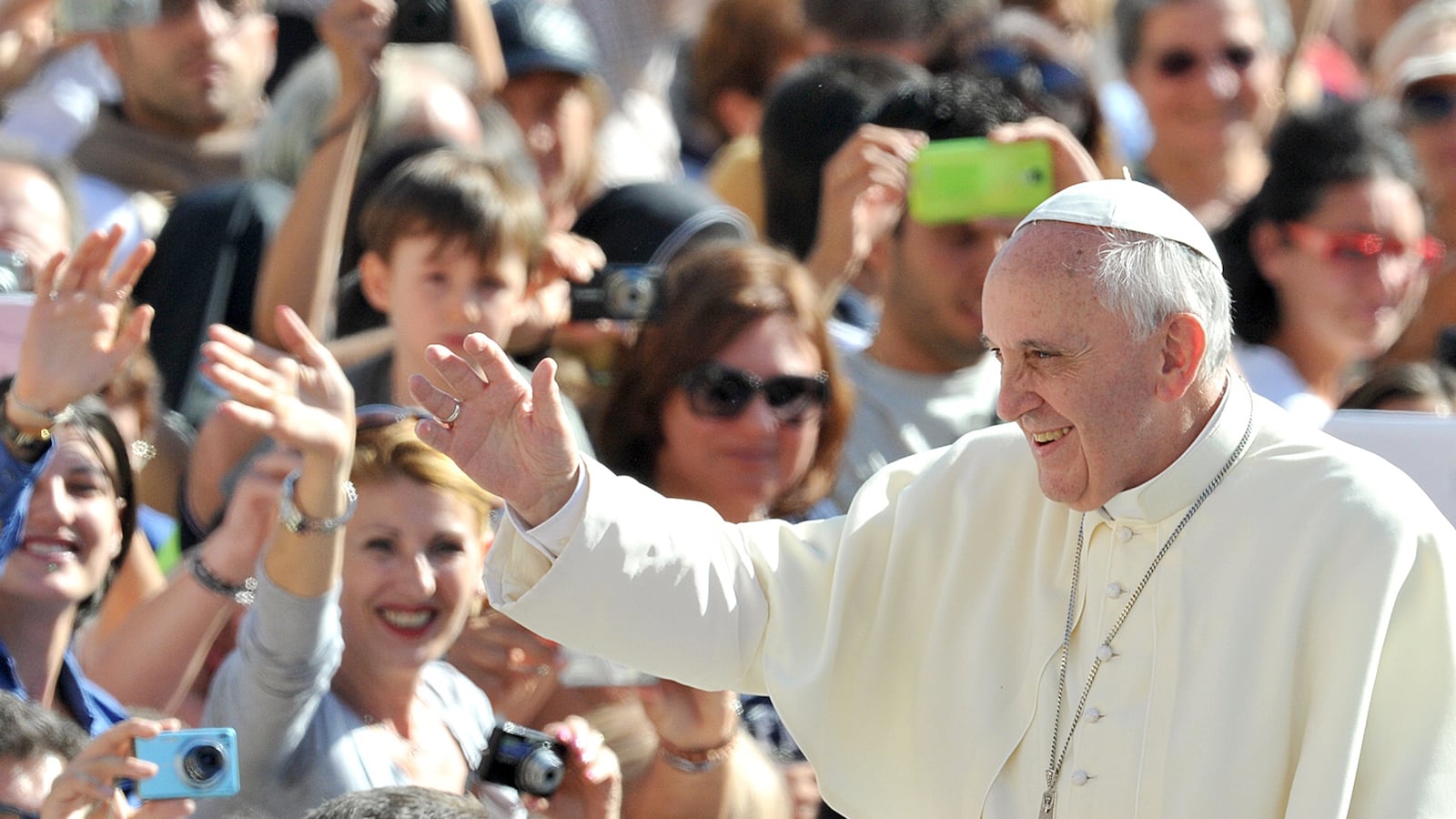Who doesn’t love Pope Francis? Hands up, if you dare. He opposes violence and war, supports the poor, focuses on the needs of the disabled, and talks about the need to suspend judgment of others. The videos of Pope Francis hugging children and asking nine-year-olds to pray for him are deliciously heartwarming. Decadently good. Baby panda falling off a slide good.
Yet not everyone is happy. Some have compared Francis-fever to the worship of idols. The problem is not Francis’s interest in alleviating poverty. After all, Benedict and John Paul II cared about the poor, too. The issue is his statements about the issues of sexual morality that have monopolized the US Catholic Church of late.
In his interview in America magazine Francis expanded upon his famous “Who am I to judge?” line from his in-flight press conference in July by saying that the church has no right to "interfere spiritually" in the lives of gays and lesbians. He further added that despite being reprimanded for it, he didn’t think it was necessary to talk about abortion, gay marriage, and contraception all the time.
There have already been murmurings of discontent from US Catholic leaders. Bishop Thomas Tobin stated that he was slightly “disappointed” that the pope had yet to speak out about the abortion. And Archbishop Charles Chaput of Philadelphia acknowledged that some more conservative Catholics “generally have not been really happy” with Francis and that the pope will have to find a way “to care for them too.”
It seems that Francis’s oppressively forgiving position on not judging others has left some Catholics feeling marginalized and excluded. Imagine that.
To be clear, Pope Francis has not changed the official Church position on homosexuality or endorsed homosexuality. His main point isn’t sexuality per se but about healing wounds and accepting everyone. As Francis himself notes, the teachings of the Church are clear and he’s in line with the Catechism.
He’s stating what should have been obvious, that the emphasis on one part of the full body of Catholic teaching has never been the litmus test for orthodoxy, regardless of personal preferences.
The trouble is that Catholics haven’t been doing that.
In the past two presidential elections, not a few American Cardinals and Bishops told Catholics voters that abortion and protecting the family was the single issue that should guide their thinking in the election. Some suggested that Obama supporters be denied the sacrament of communion until they went to confession. Many lay Catholics agreed and aligned themselves with the Republican party.

But Francis does not. As he stated in his interview, he has “never been a right-winger.”
In seeking a “new balance,” Francis is calling Catholic leaders—both religious and lay—out of politically divisive and destructive conversations and back into ministry. But will they go?
For a church that moves at a glacial pace, the murmurings of Bishops like Tobin are lightning fast and boldly subversive. The pro-hierarchy Catholics who criticized American nuns for not supporting the Vatican line are now attacking the hierarchy they once championed. Remarkable stuff, considering that Francis has not changed the Church’s teaching, only its emphasis and tone.
So far, those who feel disaffected by Francis’s papacy have responded by reassuring themselves that nothing has changed. But real divisions start with grumbling and there’s a subtly schismatic quality to those who have called Francis a “questionable example.” This latest interview may be too saccharinely compassionate for those who like a little condemnation with their communal wine.
For traditionalists who can’t get over the idea that opposition to abortion is the sole marker of orthodoxy, ‘Is the Pope Catholic?’ is a real question.






